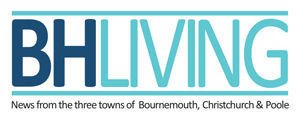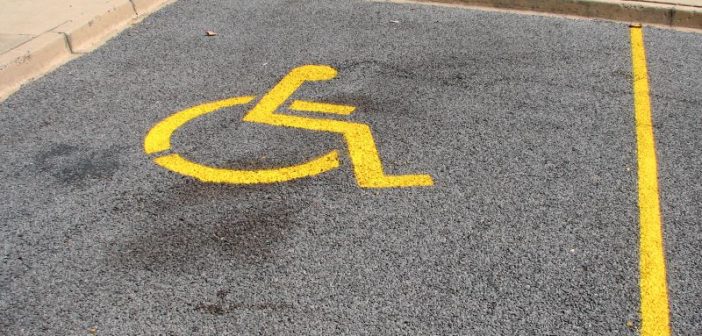The Blue Badge and Disability Tax Exempt Vehicles Scheme has been a cause of confusion for Bournemouth, Christchurch and Poole residents for many years now but changes are happening both locally and nationally.
Many Blue Badge holders can think back to times before October 2014, where Bournemouth Borough, Poole, Christchurch and East Dorset Councils all offered free parking in all of their pay and display car parks for Disability Tax Exempt Vehicles (DTEV). In 2014, the DVLA ceased to provide the paper disks that vehicles could display to show that they where a DTEV, meaning that the councils now have no way of monitoring which vehicles where tax exempt and which weren’t.
To assist local councils the DVLA designed an online portal where vehicles could register as tax exempt, and councils could use this for monitoring and checking. However, this was a short lived system as after public concerns that this information was in the public domain, the online portal was removed.
After this, each council came up with their own system which varied greatly and reflected each councils different budget and resources. The application for each district was also different, leaving people confused about how to apply, where to apply, where they could park for free, and where they had to pay.
But coinciding with the government making changes to the Blue Badge scheme BCP Council are also introduce new ‘harmonisation’ across Bournemouth, Christchurch and Poole with a conurbation wide £25 annual permit. £25 annual permit.
The government have made the biggest change to the scheme in over 40 years by now accepting applications for people with hidden disabilities. As of 30th August, people with hidden disabilities could apply for a blue badge in Bournemouth, Christchurch and Poole. The expansion of the scheme is set to make travel more accessible, however there is confusion around the term ‘hidden disability’. The .gov website outlines the new, additional criteria for people who:
- Cannot undertake a journey without there being a risk of serious harm to their health and safety or that of any other persons.
- Cannot undertake a journey without it causing them very considerable psychological distress
- Have very considerable difficulty when walking.
Although people with hidden disabilities aren’t necessarily exempt under previous criteria, there was room for interpretation. The new guidelines aim to make the criteria clearer and more consistent.
The new criteria mean that more people in the area will now be eligible to apply and we are likely to see an increase in the amount of blue badge holders across the BCP council, an increase that some people may recognise as being problematic.
As mentioned before, the application process for Blue Badges in Bournemouth, Christchurch and Poole is somewhat chaotic, but the council have taken steps to streamline the process. It does mean that some however, who enjoyed free parking will now have to pay for a £25 permit in line with other residents across BCP.
The options discussed varied both in terms so their application process and the cost to both the council and residents. The main options discussed are as follows:
- Option A – No DTEV scheme. Councils aren’t obliged to provide free parking for DTEV vehicles. However this option is less favourable as most DTEV vehicles are also blue badge holders and could potentially then chose to park outside of the car park, on double yellow lines (where they are permitted to do so for three hours) which could lead to traffic flow problems increasing congestion.
- Option B – Offer a parking concession to all Blue Badge holders. This option proved to be problematic as some DTEV’s don’t have a blue badge and therefore would be excluded from this scheme. Additionally, the implementation of this option could be potentially costly to the council.
- Option C – Provide BCP council permits for DTEV vehicles under a new criteria. The Cost of the permit would be £25 per year, a cost which would be the same for all residents across the BCP area and simply cover the cost of administration and enforcement of the scheme.
The council voted unanimously for option C- to provide DTEV council parking permits for £25 per year
However, statements from residents which where read out at the beginning of the meeting, expressed concerns for disabled people having a disadvantaged financial situation, and not being able to afford a paid permit. Therefore the council have decided to waiver the annual cost for blue badge holders who receive council tax support.
You can access the meeting agenda and minutes on the BCP website here.
Statistics published by the .gov website show that in the south west alone, as of march 2018, there are 274,000 blue badge holders, and research conducted by confused.com suggested that there are on average 44 blue badge holders per council owned disabled space in the south west – with the national average being 30 badge holders per space, do we need to address this problem too?
In a recent meeting held by the BCP council, they stated that there where no current plans to expand disabled parking across the BCP district, despite knowledge about the national expansion of the Blue Badge Scheme.
In response to this, Councillor Andy Hadley, Portfolio Holder for Transport and Infrastructure said: “As standard our car parks will contain approximately 6% disabled spaces. We actively monitor the usage of these spaces and every six months carry out a review which includes listening to customer feedback; disabled spaces may increase or decrease depending on the results of this work.
“By working in this way we can ensure that disabled bays are provided at the locations most used by blue badge holders and those bays used minimally can be freed up for alternative use.
“We will continue with this approach following the roll out of the updated blue badge scheme, and would encourage our blue badge holders to use these marked parking bays where possible.”


